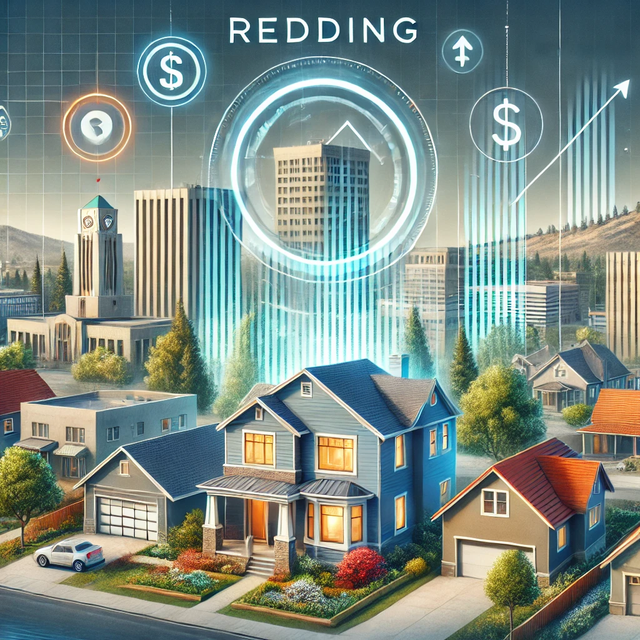The Future of Property: Trends and Opportunities to Enjoy
As the property landscape develops, it comes to be progressively essential to comprehend the arising fads and possibilities that will certainly specify the sector in the coming years. Technical advancements are improving transactional procedures, while an expanding concentrate on sustainability mirrors transforming customer top priorities. In addition, group changes and the surge of remote job are affecting real estate choices, especially in suv areas. With these dynamics at play, a closer evaluation of the adaptations and methods needed for success exposes fascinating opportunities that might reshape investment approaches and market actions.
Technical Technologies in Property
In recent years, the actual estate market has welcomed a wave of technological innovations that are transforming standard techniques. One of the most notable developments is the surge of huge information analytics, which allows genuine estate specialists to analyze market trends, anticipate property values, and determine financial investment possibilities with unprecedented accuracy.
Furthermore, online fact (VIRTUAL REALITY) and augmented truth (AR) modern technologies are revolutionizing building marketing by offering immersive experiences for possible customers and occupants. These tools allow clients to perform virtual tours of homes, thus streamlining the search procedure and improving customer engagement. Additionally, blockchain technology is gaining traction as a way to protect deals and preserve transparent records, thereby reducing scams and accelerating the closing process.
Smart home modern technologies are additionally coming to be significantly widespread, making it possible for home owners to keep an eye on and manage their buildings remotely (Real Estate Lockhart). Jointly, these technical developments are reshaping the landscape of realty, promoting a much more effective, transparent, and customer-centric market
Demand for Lasting Residences
As customers progressively focus on environmental obligation, the demand for lasting homes has actually surged in the actual estate market. This shift mirrors a broader social trend toward sustainability, with capitalists and homebuyers looking for homes that decrease environmental influence while taking full advantage of power efficiency. Attributes such as solar panels, energy-efficient home appliances, and sustainable structure products are now viewed as crucial as opposed to optional.

Additionally, the surge of eco-friendly areas, which focus on walkability and access to mass transit, further stresses this pattern. These developments appeal to eco aware customers and advertise a healthier way of life.
As the demand for sustainable buildings proceeds to climb, sector stakeholders have to adjust to these expectations. By welcoming cutting-edge techniques and focusing on sustainability, the property market can not only fulfill consumer need however also add to a much more lasting future.
Altering Customer Demographics

Additionally, the aging population is reshaping demand for housing. Baby boomers are looking for scaled down homes that provide access and reduced maintenance, typically favoring urban settings with nearby amenities. This change requires a concentrate on multi-generational housing solutions that suit differing demands.
In addition, multiculturalism is playing a pivotal duty in genuine estate trends. Customers from various backgrounds bring distinct choices and expectations, triggering developers to develop comprehensive atmospheres that accommodate a larger target market. As these market shifts remain to advance, property specialists need to adjust their approaches to resolve the needs of these diverse purchasers. Understanding these changing demographics will certainly be essential in recognizing arising possibilities and crafting customized advertising and marketing approaches that reverberate with the varied requirements these days's market.
Surge of Remote Job Influence
Progressively, the increase of remote work is transforming the realty landscape, triggering significant shifts in customer preferences and area options. As employees enjoy the flexibility of functioning from home, numerous are reviewing their residential requirements, leading to a rise sought after for buildings in rural and rural locations. This fad is mostly driven by the desire for more sizable living atmospheres that can suit office and a much better quality of life.
Furthermore, metropolitan centers, as soon as the prime focus for next page buyers, are experiencing a steady decline sought after as people focus on price and accessibility to nature. Subsequently, property programmers and capitalists are changing their emphasis towards residential properties that supply office areas, outside features, and closeness to essential services.
Genuine estate experts should adjust to the transforming preferences of customers, highlighting the significance of way of living factors in their advertising methods. The ramifications of remote work on genuine estate are extensive, forming future patterns and possibilities.
Investment Opportunities in Emerging Markets
Financial investment chances in emerging markets are regularly attracting attention from actual estate investors looking for diversity and development possibility. These markets, identified by rapid economic development, increasing urbanization, and an expanding middle course, existing special leads for savvy financiers. Nations in Southeast Asia, Africa, and Latin America her comment is here are witnessing substantial facilities enhancements and desirable government policies, which even more improve their allure.
Actual estate industries such as property, business, and logistics are experiencing enhanced demand because of city migration and advancing consumer choices. Notably, cities like Ho Chi Minh City, Nairobi, and Medellín are coming to be hotspots for investment as a result of their broadening economic climates and vibrant demographics.
Capitalists need to carry out detailed market evaluations to identify essential patterns, such as shifts in population dynamics and financial security, which can affect residential or commercial property worths. Additionally, partnerships with local realty companies can help with effective entrance and navigation in these markets.
However, it's critical to be conscious of prospective dangers, including political instability and governing obstacles. By evaluating these aspects and adopting a long-term viewpoint, financiers can efficiently profit from the rewarding chances arising in these creating regions.

Verdict
In final thought, the future of genuine estate will certainly be considerably affected by technological advancements, an expanding emphasis on sustainability, and evolving buyer demographics. Browsing this transforming landscape will need strategic collaborations and her response a keen understanding of market dynamics to capitalize on the patterns shaping the sector.
As the genuine estate landscape develops, it ends up being progressively necessary to recognize the arising fads and opportunities that will certainly specify the industry in the coming years. One of the most significant developments is the rise of large information analytics, which allows actual estate experts to analyze market fads, anticipate building values, and identify investment chances with extraordinary precision.As consumers significantly prioritize ecological obligation, the need for lasting buildings has actually risen in the real estate market. The implications of remote work on genuine estate are profound, forming future fads and possibilities.
Financial investment possibilities in arising markets are consistently attracting attention from genuine estate capitalists looking for diversification and growth capacity.